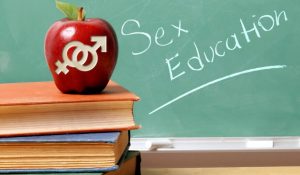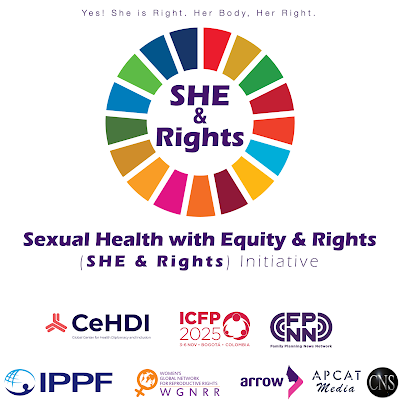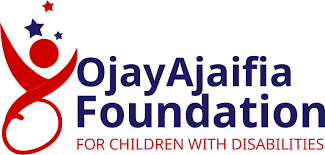By Ojoma Akor
Experts have said that teachers are crucial in providing comprehensive sexuality education for young people.
They stated this during a SHE & Rights session themed ‘It is time for accountability and action after UNGA High Level Meeting around Beijing +30’. It was held ahead of the International Conference on Family Planning (ICFP 2025), in Bogota, Colombia.
Sai Jyothirmai Racherla, Deputy Executive Director, The Asian-Pacific Resource & Research Centre for Women (ARROW), said that comprehensive sexuality education is an important aspect of adolescents, children, and young people’s well-being.
She said, however, that there were so many barriers to advancing comprehensive sexuality education.
She said, “We also know that every child, adolescent, and young person, regardless of who they are and where they live, deserves an opportunity to learn and develop skills that will enable them to make safe and confident choices about their lives – and comprehensive sexuality education is one such life skill.
“As advocates for sexual and reproductive health, rights, and justice, one of our key agendas has been to ensure that we provide access to comprehensive sexuality education within the education ecosystem.
“We see teachers as one crucial stakeholder group, and Asia Pacific Multistakeholder Dialogue was pinning on the teachers and how teachers can be good enablers to provide comprehensive sexuality education.”
She explained that global research also says that teachers are the most important school-related factor affecting students’ learning.
“Evidence also shows that addressing learners’ health well-being and education improves school education, school attendance, retention and learning quality.
“So, just providing comprehensive sexuality education not only improves the life skills but also it improves the learning capabilities across other learning arenas and that is the evidence that we have with regards to comprehensive sexuality education,” she stated.
Sai said one of the recommendations of the Asia Pacific multistakeholder dialogue on comprehensive sexuality education (CSE), organized by ARROW, is to invest in high-quality, inclusive pre- and in-service teacher training for CSE.
“We are not only talking about students’ curricula, which is also very important, and that is the agenda that we are all pushing forward, but in addition to students’ curricula, we are also talking about teachers’ pre- and in-service teacher training curricula, which should mandatorily include comprehensive sexuality education,” Sai added.
Dr Pam Rajput, Professor Emeritus and Founder, Department cum Centre for Women’s Studies and Development, Panjab University, India, and a renowned academic and feminist leader said, “As a feminist and a teacher, I am so very happy that the issue of the well-being of teachers has been raised. I think this is the first meeting where my community has been recognized, their concerns and interests have been recognized. I stand with you.”

Meanwhile, Zuzan of Y-PEER Laos and Y-PEER Asia Pacific Centre said the Asia Pacific regional multistakeholder dialogue on comprehensive sexuality education, youth voice, clearly echoed the need for comprehensive sexuality education that is inclusive, rights-based, and adaptable to our diverse realities.
Zuzan said, “Even today, many young people still face stigma, lack of access and misinformation when it comes to sexual and reproductive health. So, without addressing these barriers, SDG-3 and SDG-5, will remain out of reach.
Teachers are not just knowledge providers but role models who can inspire values of equality, respect, and empathy in the next generation. Equipping teachers with the right training means equipping adults with the skill to think critically, to make informed choices, and to treat others with respect and dignity.
“Young people are asking not just to be seen as beneficiaries but to be recognised as co-creators, partners, and decision makers in shaping our own future. Youth participation should go beyond consultation. Young people must be a part of designing, implementing and monitoring programmes of comprehensive sexuality education.”
Zuzan said this meant establishing mechanisms for youth-led accountability, such as youth advisory roles, comprehensive sexuality education monitoring committees, and intergenerational dialogues that allow feedback to reach policy-making.
Because accountability is not only about tracking progress, but also about sharing power and trust with young people, she said.
She said, “Looking ahead, accountability must mean more than just tracking promises – it must mean resourcing and implementing them.”
80th UNGA High-Level Meeting re: Beijing+30
Shobha Shukla, who was the Lead Discussant for SDG-3 at the intergovernmental United Nations High Level Political Forum 2025 said the “80th United Nations General Assembly High-Level Meeting was held on 22nd September 2025 to commemorate the 30th anniversary of the 4th World Conference on Women (where Beijing Declaration 1995 was adopted along with its Platform for Action). The Beijing Declaration and Platform for Action is the most ambitious global political commitment on women’s rights ever achieved. It affirmed that the rights of women and girls are not separate, secondary, or negotiable – they are human rights.”
Shukla who is also of CNS and host of SHE & Rights said the Beijing Declaration and its Platform for Action has helped to power advances in some critical areas — legal protection, political participation, education, maternal mortality, recognizing the need to tackle violence against women as a global priority, and more.
She said, “But progress has been slow and uneven, and no nation has achieved full equality for women and girls and gender diverse peoples.”
She added that it was important to remember that UN Special Rapporteur on Right to Health Dr Tlaleng Mofokeng has stated that gender equality and right to health are fundamental human rights – and non-negotiable.
“UN ECOSOC adoption by consensus to revitalize the largest gathering on gender equality (UN Commission on the Status of Women or CSW) at UNGA gives us hope too,” she said.
Shiphrah Belonguel, Global Advocacy Officer, Fòs Feminista (International Alliance for Sexual and Reproductive Health, Rights and Justice – SRHRJ) said, “CSW revitalisation process is an effort by the UN to strengthen the mandate of the UN Commission on the Status of Women (CSW). We put out an advocacy brief that made three clear demands.”
Fos Feminista also serves as co-convener of Women’s Rights Caucus (WRC), a global self-organised feminist space that engages with CSW process.
Shiphrah lists out the three key asks as follows:
-Defending and strengthening the mandate of the CSW as a robust normative platform for gender equality.
-Ensuring that the agreed conclusions that come out of the process remain a central and ambitious normative framework, reaffirming member states’ commitments to the Beijing Declaration and its Platform for Action, and
-Safeguarding civil society participation and preventing any rollback of civic space.
“So, demand-3 has been a particularly contentious point of advocacy, especially with several member states who have pushed back against institutionalising practices related to civil society participation, such as the civil society town hall. Since our collective advocacy, the revitalisation resolution has already been adopted within the framework of the UN Economic and Social Council (ECOSOC),” said Shiphrah of Fos Feminista. “Starting from the 70th CSW session in 2026, we will be seeing High Level Meetings on violence against women organised.”
The SHE & Rights session is jointly hosted by Global Center for Health Diplomacy and Inclusion (CeHDI), International Conference on Family Planning (ICFP) 2025, Y-PEER Asia Pacific, Y-PEER Laos, Family Planning News Network (FPNN), International Planned Parenthood Federation (IPPF), Asian-Pacific Resource and Research Centre for Women (ARROW), Women’s Global Network for Reproductive Rights (WGNRR), Asia Pacific Media Alliance for Health and Development (APCAT Media) and CNS.




